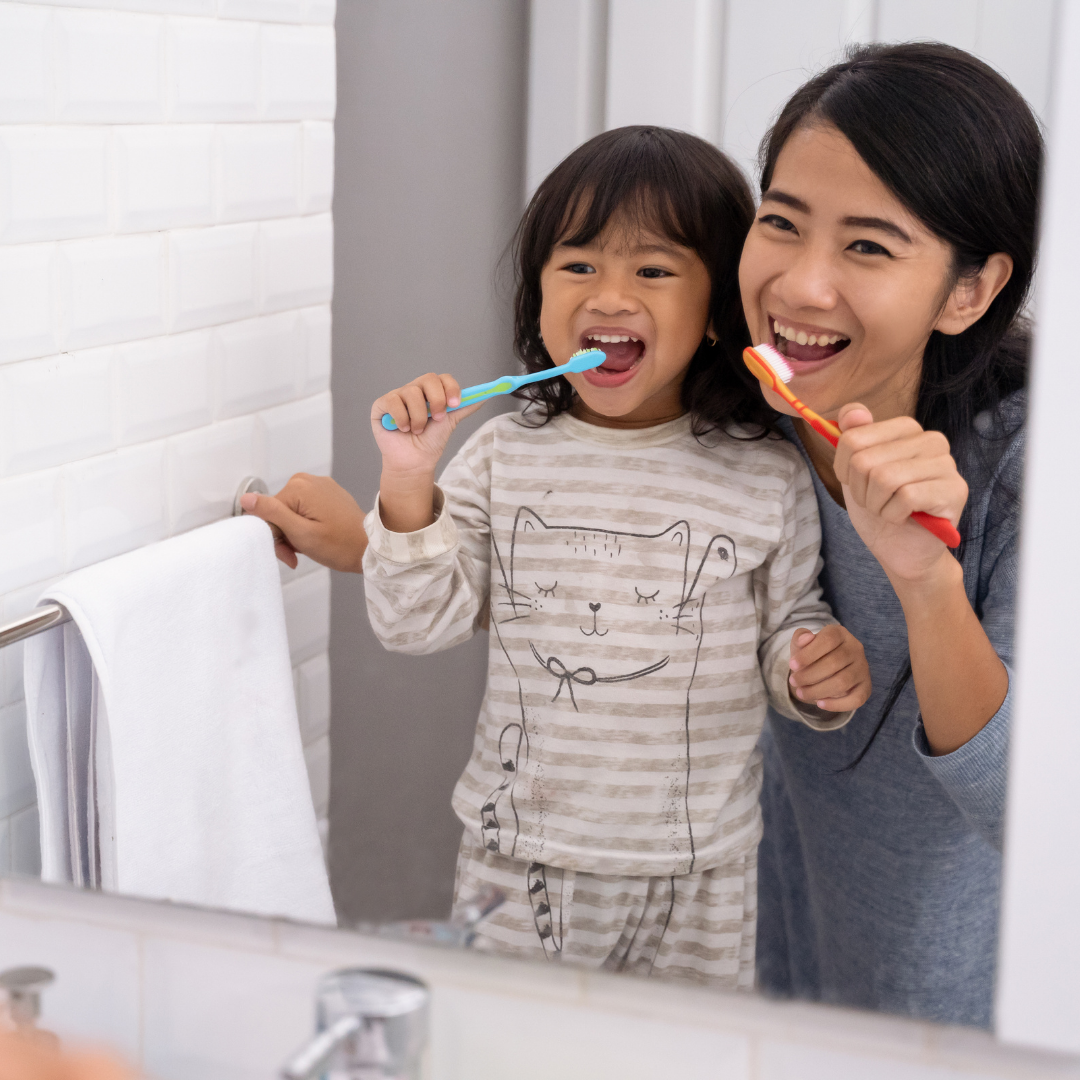Brushing Twice A Day Keeps the Cavities Away
This post is also available in:  Français
Français
Brushing Twice A Day Keeps the Cavities Away
How to take care of your child's teeth
By Holly Grattan

Enfants d’Azur’s very first medical expert, Dr. Mona Moussalli, a paediatric dentist, based in Antibes says, “In order for your child to have healthy teeth and gums throughout their life, it is important that you help your child to take good care of them from birth”.
So, what is the best way to take care of your child's teeth at the following critical stages: 0-5 years, 6-9 years and 10-15 years?
0-5 years old: Brush the teeth from the moment your child gets their first tooth, and if your child uses a pacifier, try to wean them off it by the time they are 3 years old.
According to Dr. Moussalli, as soon as your child gets his or her first tooth, a toothbrush and toothpaste should be used. She recommends that your child’s teeth be brushed twice a day using a soft toothbrush with a small head. Use baby toothpaste that contains fluoride relevant to the child’s age. When your child is under 3½ years old, an amount corresponding to half of their little fingernail must be used. When the child is over 3½ years old, the amount can be increased so that it corresponds to a whole little fingernail. Once the child has got his or her baby molars, it is a good idea to start flossing in between the teeth, since a lot of cavities start there.
When it comes to using a pacifier Dr. Moussalli says that there is no need to be worried about the teeth. She explains children have a natural need for a pacifier, and it can be fine for a short period of time. However, she advises that you should try to avoid your child using one excessively. Additionally, you should never dip the pacifier in sugar or honey as it can cause cavities. The same is true if you give your baby juice or sweet drinks in a feeding bottle. Only give your baby milk or water in a bottle. However, make sure not to give the baby anything other than water in their feeding bottle at night, as milk contains lactose that helps to create cavities in the teeth.
6-9 years old: Train your child to brush their teeth themselves and pay attention to the first permanent molar.
When the child is between 6 and 9 years old, Dr. Moussalli advises parents to continue helping with the brushing, since a child is not capable of brushing the teeth correctly themselves. Now it is fine to use the family's normal toothpaste as long as it contains fluoride. It is good to train your child to brush their teeth themselves, but always brush them again yourself afterwards and do not forget to floss.
Around the age of 6, your child gets their first permanent molar. They come behind the baby teeth and can be difficult to see when they first emerge. It is important to brush the first molar from the start. If they are difficult to reach, you should try turning the toothbrush sideways. The first molar has a high risk of cavities and is normally sealed at dental clinics to avoid this.
Dr. Moussalli emphasizes the importance of a healthy diet on your child’s oral health. What your child eats, and drinks plays an important role in the care of their teeth. Choose healthy and varied foods that your child likes and save on foods and beverages that are high in sugar. Give your child water or milk to quench their thirst during the day, and only let them drink sweet drinks on special occasions. It may be a good idea to introduce 1 day each week where your child is allowed to have candy, and then drop it completely for the rest of the week.
10-15 years old: Make sure your child does not get too many sweet things
At the age of 10, you no longer need to help your child brush their teeth, but you need to check that they are doing it properly. Continue making sure that the child gets a healthy and varied diet and try to avoid your child snacking on sweet things but instead eats fruit or vegetables as a snack. If your child eats sweets all the time, there is a great risk that they will eventually get cavities in their teeth. Therefore, try to limit the child's intake of sweets to a maximum of once a week, e.g., in the form of Friday sweets. It is also important to pay attention to what your child is drinking. Thirst should be quenched with water or milk, and sodas and juices should be limited to ½ litre per week. The acid and sugar in sweet drinks really damages the teeth and creates cavities.
When your child is between 10 and 13 years old, the last baby teeth become loose and fall out. However, as Dr. Moussalli explains, it may happen that new teeth appear in front of or behind the old baby teeth, so that the child has 'double teeth' for a period of time. Eventually they will fall out by themselves, but if this is not the case you should contact your child's dentist.
Around the age of 12, children get 4 new second molars and they come out behind the first molar. As with the first molar, it is important to brush the second molar well from the start. As with the first molars the second molar in most cases also needs to be sealed in order to protect it from cavities later in life.
Author: Holly Grattan

